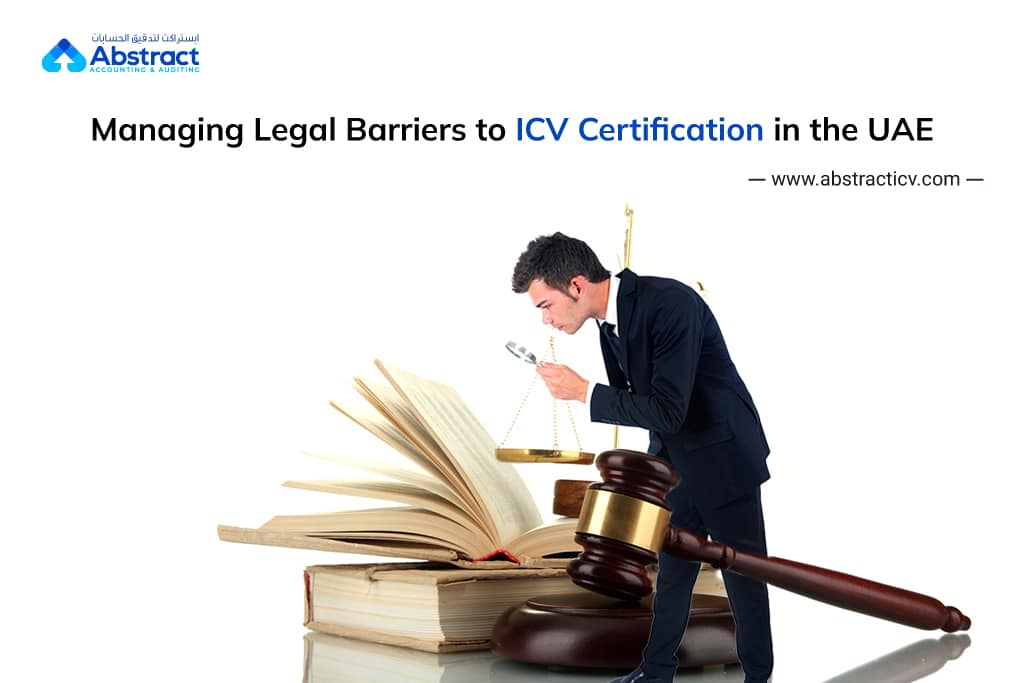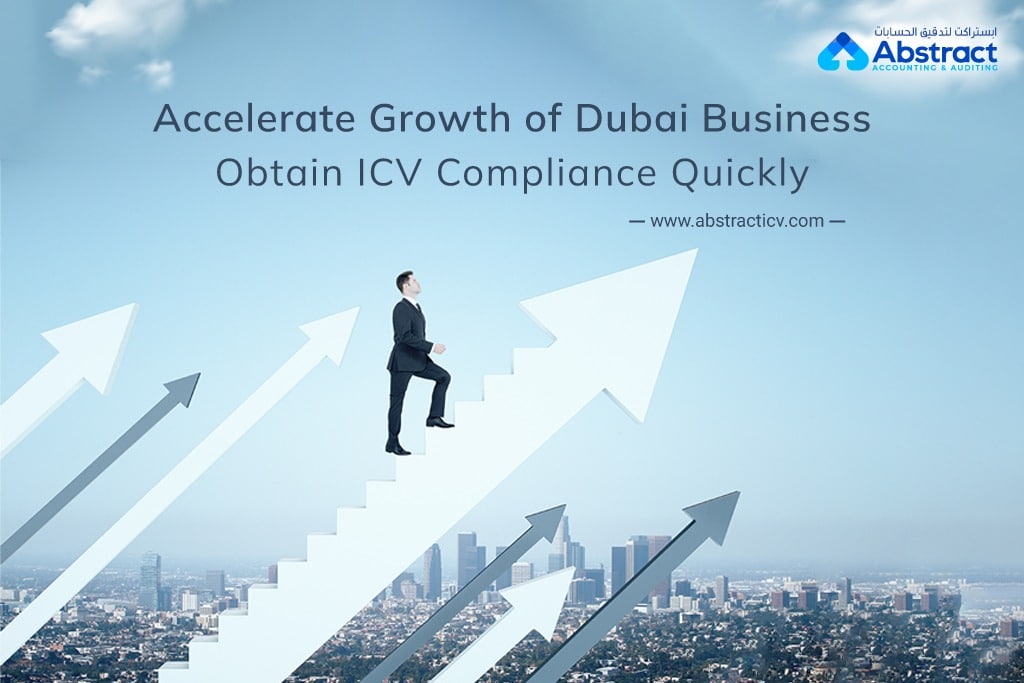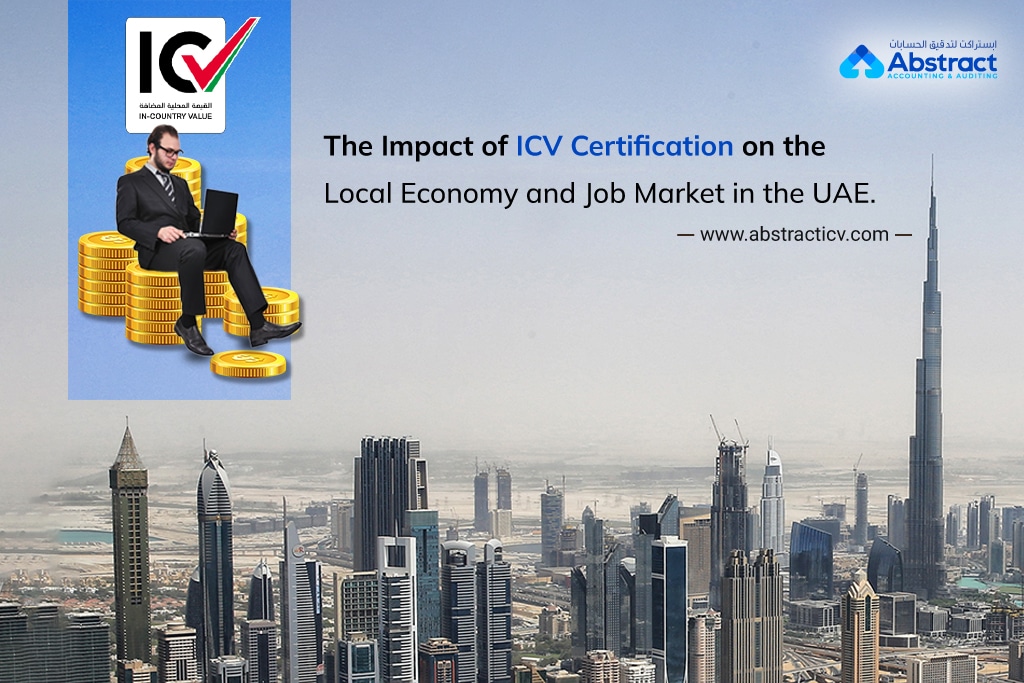In the United Arab Emirates (UAE), enterprises who would like to participate in government bids, contracts, and procurement operations are required to get the In-Country Value Certificate. To put it another way, it evaluates the value that a company brings to the United Arab Emirates by way of the local products, services, and labor that it employs.
The Undisputed Importance of a UAE ICV Certificate
Mandatory for Success:
ICV certification in the UAE is crucial due to mandatory compliance. Large companies and regulators require ICV certification for business partnerships. Businesses seeking government contracts or strong relationships with UAE competitors need ICV certification.
Benefits of UAE ICV Certification:
ICV certification provides UAE businesses with a range of financial, operational, and reputational benefits that can drive growth, competitiveness, and contribution to the local economy. The key benefits of ICV (In-Country Value) certification in the UAE are:
- Immediate Financial Gains: ICV certificates can provide companies with tax credits, grants, and other incentives that reduce business costs and increase profits.
- Community Growth: ICV certification demonstrates a company’s commitment to sustainable development and investment in the local community, which helps build trust and improve brand value.
- Expansion and Market Value: The financial incentives from ICV certification can significantly improve a company’s net market value, enabling expansion and reinvestment.
- Competitive Advantage: Governmental bodies and other ICV-registered entities tend to favor suppliers and partners with high ICV scores, giving them an advantage in procurement processes.
- Investor Trust: ICV certification signals to investors that a company is dedicated to the economic and social development of the UAE, which can boost investor confidence.
- Long-term Economic Benefits: ICV offers more than just immediate financial returns — it can lead to long-term economic gain, brand development, and improvement of a company’s international image.
Fulfilling Social Responsibility:
ICV certification goes beyond just economic benefits. Companies demonstrate their social responsibility by recruiting and training UAE nationals, contributing to a skilled local workforce. This reduces unemployment and fosters economic development, aligning with the UAE’s goals.
Sustainable Growth:
The UAE’s economic development is tied to ICV certification. ICV-certified companies are better positioned to adapt to economic changes and ensure their continued success.
Environmental Sustainability:
ICV certification promotes sustainable business practices. Investments in renewable energy and local production contribute to economic diversification. ICV-approved companies are encouraged to recycle, reduce waste, and lower emissions. Through ICV certification, businesses and the government can work together towards environmental sustainability goals. Eco-conscious investors are more likely to fund ICV-certified companies focused on energy efficiency and environmental impact reduction. This collaborative approach achieves a balance between economic growth and environmental protection, which is crucial for the UAE’s future.
Increased Investment Opportunities:
ICV certification unlocks funding and investment opportunities for UAE businesses. Investors perceive ICV-certified companies as lower risk and more likely to generate profits. Shareholders are more willing to invest in ICV-certified companies due to their alignment with the UAE’s economic goals and commitment to long-term success.
Key Legal Challenges of ICV Certification
Obtaining ICV certification in the UAE requires meeting a set of regulatory standards. Here are some key legal challenges suppliers may face:
Compliance with the UAE Legal Framework
The ICV certification process is governed by the UAE’s legal framework, which includes federal laws, regulations, and directives. Suppliers must ensure they comply with all relevant legal requirements, such as those related to company registration, licensing, and taxation. For instance, registering a company with the appropriate authorities and obtaining the necessary licenses are prerequisites before operating in the UAE.
Meeting Eligibility Criteria
To qualify for an ICV certificate, suppliers must be a legal entity registered in the UAE, possess a valid trade license, and have audited financial statements no more than two years old. It’s crucial to ensure all qualifying requirements are met before applying for an ICV certificate.
Accurate Financial Reporting
The ICV certification process involves calculating a supplier’s ICV score based on their financial statements. Suppliers must guarantee these statements accurately reflect their activities and comply with International Financial Reporting Standards (IFRS). Any discrepancies in the financial statements can lead to ICV certificate rejection.
Compliance with the ICV Formula
The ICV formula calculates a supplier’s ICV score using various factors like goods production costs, UAE investment, Emiratization (local workforce percentage), expatriate contribution, and potential bonuses. Suppliers must adhere to the ICV formula and provide accurate information in the ICV certificate template. Failure to comply with the formula can result in application rejection.
Navigating Legal Challenges in ICV Certification
Obtaining ICV certification in the UAE can be a complex and time-consuming process for suppliers due to the legal intricacies involved. To ensure compliance and maximize their ICV score, many suppliers choose to partner with an ICV certificate consultant.
- Understanding Legal Requirements: Consultants can help suppliers navigate the legal requirements for ICV certification, including company registration, licensing, and financial reporting.
- Preparing Accurate Financials: ICV consultants can assist suppliers in preparing accurate financial statements that comply with International Financial Reporting Standards (IFRS). They can also identify and address any discrepancies that could negatively impact the ICV score.
- Compliance with the ICV Formula: Consultants ensure the ICV formula is followed correctly and that accurate information is provided in the ICV certificate template. They can analyze the template and suggest areas for improvement or additional information.
- Maximizing the ICV Score: Consultants can help businesses identify opportunities to increase their ICV score by analyzing their operations and suggesting ways to boost local content or investment in the UAE.
- Timely Certification: Consultants can streamline the certification process by helping suppliers prepare documents and submit applications to the Ministry of Industry and Advanced Technology efficiently.
Conclusion,
The ICV certificate issued in Dubai is an essential prerequisite for enterprises to succeed in the highly competitive industry. It is more than just a compliance requirement. With ICV accreditation, firms can not only contribute to Dubai’s economic progress, but also promote themselves as socially responsible enterprises. As the business landscape evolves, the ICV accreditation acts as an indicator, guiding enterprises to a future of sustainable expansion, increased competitiveness, and long-term connections in Dubai.
How we can help:
We provide guidance and support throughout the ICV certification process. From preparing for assessments to compiling necessary documentation, we ensure compliance and maximize your ICV score. Our comprehensive assistance extends to ongoing support, helping you navigate challenges and streamline the process. Partner with us to demonstrate your commitment to UAE’s economic growth.



